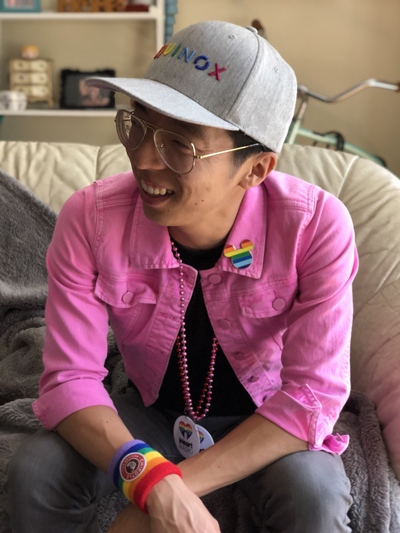May 30, 2019
•
BGB Equality

Growing up in a suburban conservative town, there weren’t many queer role models for me to look up to. I remember listening to Rent and thinking, “Do I need to move to New York and start taking AZT?” My sexuality frightened me. A pastor’s kid and a child of immigrants, I faced a lot of pressure to keep a low profile.
So, I secretly searched for art that represented my experience. All I found were tragic dramas like Latter Days and Brokeback Mountain, or provocative romps like Queer as Folk and Will and Grace. Don’t get me wrong—I am grateful to those shows for helping me process my overwhelming feelings; however, I began to believe that the only choices I had were to suffer silently or go on a wild sex rampage. Remember, I was young, dumb and…a hormonal teenager.
Since then, LGBTQ+ visibility has increased immensely, but the landscape has not quite changed. The predominant narrative is still one of unrequited/lost love as portrayed (albeit beautifully) by straight white male actors.
To be fair, it’s complicated. Brokeback Mountain would never have gotten the acclaim it did if it didn’t have Hollywood stars in the lead roles. Without star power, many of these stories would not be produced. But would Dallas Buyers Club still be as successful had Jared Leto’s role been played by an actual transgender actress? He thinks not. Darren Criss, who has won critical acclaim for playing gay roles in both Glee and American Crime Story: Versace, recently stated that he wants to make sure he “won’t be another straight boy taking a gay role.”
We can do better. The problem begins not in casting, but with the producers and the actual writers. A straight white woman wrote Love, Simon, and the Call Me By Your Name author has a wife, kids, and not one gay relationship in his past. We are conditioned to accept representations of ourselves built off heteronormative imaginations, where queers are “just like us,” except that sex thing. These whitewashed, socially-acceptable versions of queerness ignore the reality that our sexuality sets us apart at work, at the gym, in PTA meetings—the very spaces where we are told to blend in.
Queerness, by definition, does not blend in.
And this is to say nothing about the lack of POC behind and in front of camera. As champions of visibility and inclusivity, the dominant voices of LGBTQ+ are surprisingly homogenous. A 2015 Buzzfeed report found that the Human Rights Campaign staff were 52% male and 70% Caucasian. Even there– white males control the narrative. This matters, because being gay does not make one incapable of racism, sexism, or toxic masculinity. Rather, discrimination within the community is pervasive, dismissed, and often internalized.
As a queer Asian male, I experience discrimination in all too many ways. I’m too flamboyant. Not quite all-American. Terrible at math (bad Asian). Terrible at fashion (bad gay). Of course, I get “where are you really from” questions all the time. But the subtler remarks, the disbelief of my singing voice, the concern with my choice of career, the “I love you but you’re not my type” statements, those are what get to me.
I’m at the intersection of two insidious stereotypes. As an Asian, I’m expected to be small, quiet, desexualized, and undesired. Yet, as a gay man, I should embrace this culture of unabashed sexuality and aggressive liberation. The more I dig into my work – my acting and my music, the more I realize how strong this pressure to conform is.
I feel the pressure in casting rooms, especially commercial ones. Early on in my career, my agent submitted me for everything labeled Asian, gay, young, or “interesting face.” 9 times out of 10, if I was in a room full of nerdy white dudes, I got the callback or booking, but if I was with seemingly queer folk, those chances went down to 4/10; with Asians, they were super slim, 1/10. Over time, I realized that my niche was actually in the unlabeled market.
I am American. I am queer, I am Asian, and I’m WASP-y af. There is no typecast which can easily describe me; in fact, a recent branding workshop could not conjure up one well-known actor to which I could play similar roles. The truth is, those roles don’t exist… yet. I have to create these roles for myself. I need to live all these truths, so that someday, a small-town, queer (+/o Asian) kid watching television will see me, and think, “Wow. I can do anything.”